Part Analysis
| General Data | |
| Manufacturer (OEM) | High Power |
| PCB Type | Double-Sided |
| Primary Side | |
| Transient Filter | 4x Y caps, 2x X caps, 2x CM chokes, 1x MOV, 1x HF81 (Discharge IC) |
| Inrush Protection | 1x NTC Thermistor SCK-057 (5 Ohm @25°C) & Relay |
| Bridge Rectifier(s) |
2x GBJ2506 ((600V, 25A @ 100°C)
|
| APFC MOSFETs |
2x Infineon IPW60R120P7 (650V, 16A @ 100°C, Rds(on): 0.120Ohm) &
1x Sync Power SPN5003 FET (for reduced no-load consumption) |
| APFC Boost Diode |
1x Toshiba TRS10E65F (650V, 10A @ 25°C)
|
| Bulk Cap(s) |
2x Nichicon (450V, 560uF or 1,120uF combined @ 105°C, GL(M))
|
| Main Switchers |
2x NCEPOWER NCE65TF009F (650V, 24A @ 100°C, Rds(on): 109mOhm)
|
| Resonant Controller |
Champion CU6901VAC
|
| APFC Controller |
Infineon ICE3PCS01G
|
| Topology |
Primary side: APFC, Half-Bridge & LLC converter
Secondary side: Synchronous Rectification & DC-DC converters |
| Secondary Side | |
| +12V MOSFETs | 4x Infineon BSC010N04LS (40V, 178A @ 100°C, Rds(on): 1mOhm) |
| 5V & 3.3V | DC-DC Converters: 8x Infineon BSC0906NS (30V, 40A @ 100°C, Rds(on): 4.5mOhm) PWM Controller(s): ANPEC APW7159C |
| Filtering Capacitors | Electrolytic: 8x Rubycon (3-6,000h @ 105°C, YXG), 1x Nippon Chemi-Con (2-5,000h @ 105°C, KZE) Polymer: 14x Nippon Chemi-con, 8x FPCAP, 1x Rubycon (YXG), 8x NIC |
| Supervisor IC | Weltrend WT7527RA (OVP, UVP, OCP, SCP, PG) |
| Fan Controller | STCmicro STC15W408AS |
| Fan Model | Globe Fan RL4Z S1352512HH (135mm, 12V, 0.45A, Fluid Dynamic Bearing Fan) |
| 5VSB | |
| Low Side Rectifier |
1x P10V45 SBR (45V, 10A)
|
| Standby PWM Controller | SI8016HSP8 |
High Power is the OEM behind this platform, and this is easy to find out by looking at the design of the heatsinks on the primary side. The PCB is loaded with parts despite the increased number of daughter boards used. Polymer caps are mostly used on the secondary side for ripple filtering, with few electrolytic caps mainly used for energy storage.
The unit’s design is contemporary, with a half-bridge topology on the primary side and an LLC resonant converter for lossless switching. Four Infineon FETs handle the 12V rail on the secondary side, and a pair of PWM controllers generate the minor rails. ANPEC provides the VRMs’ common PWM controller.
Except for the fan, which is terrible, all other parts are of good quality. Nonetheless, I spotted a really bad area at the PCB’s solder side, so while the solder quality is fair, this bad area spoils the overall impression. Apparently, something went wrong in the production line, and the quality control wasn’t tight enough to “cut” this unit.
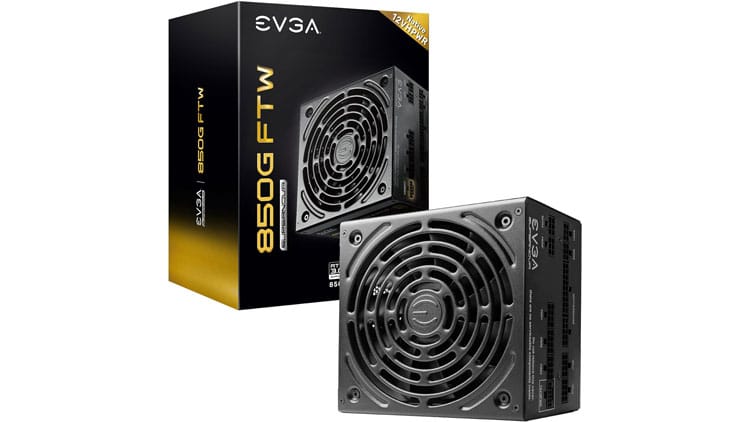
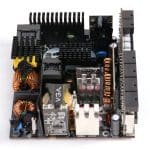
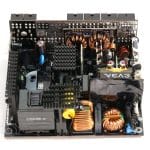
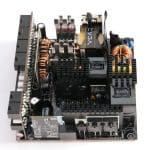
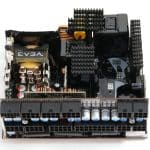
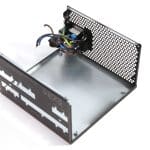
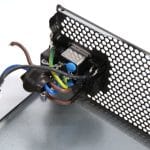
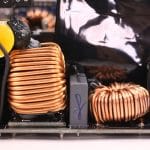
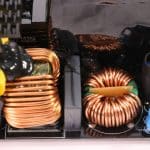
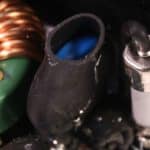
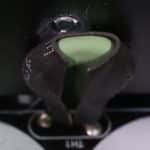
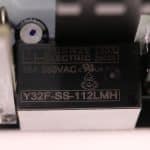
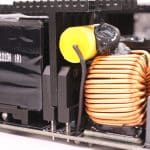
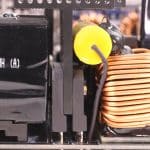
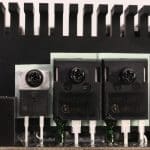
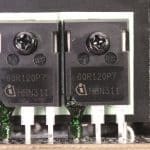
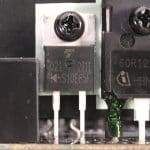
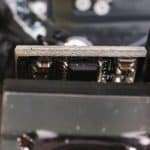
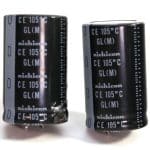
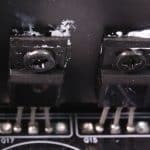
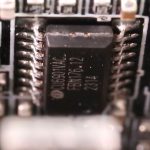
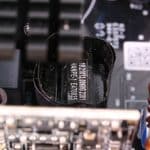
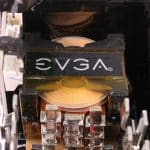
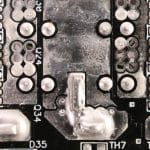
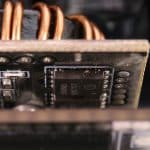
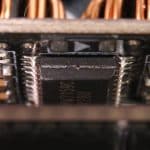
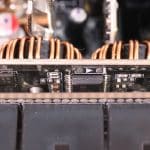
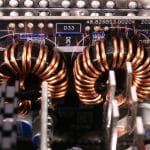
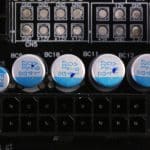
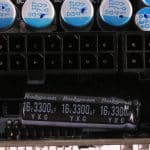
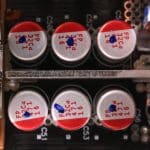
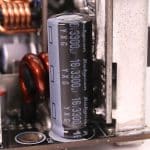
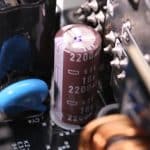
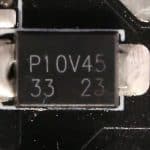
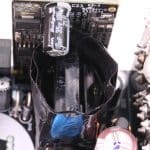
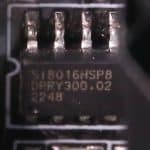
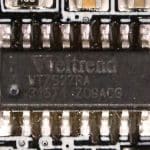
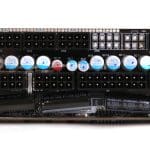
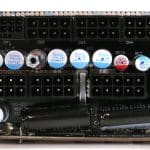
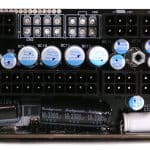
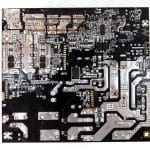
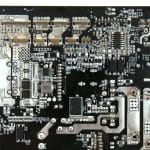
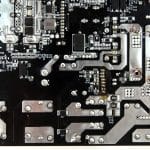
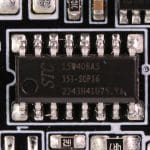
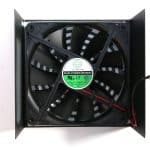
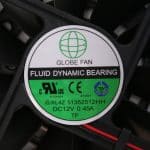
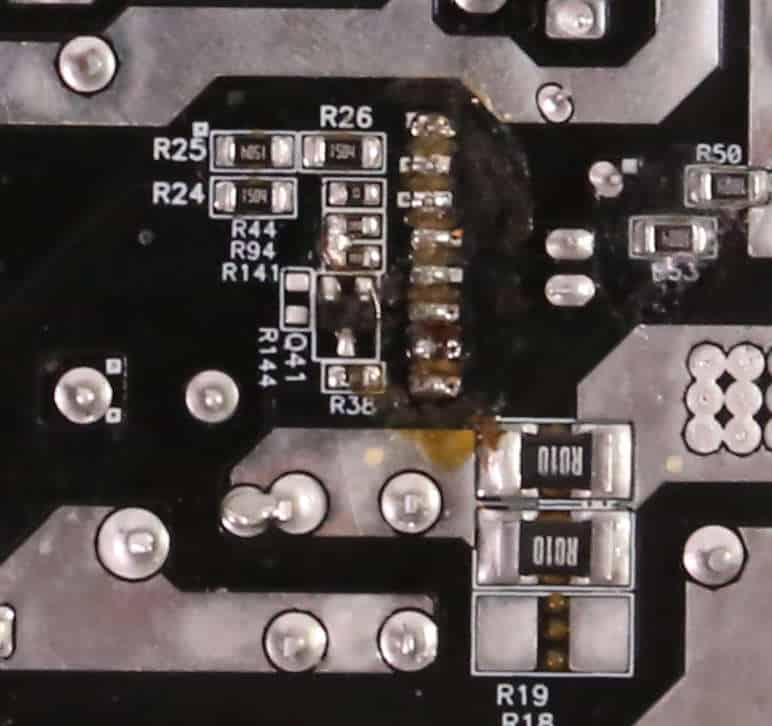
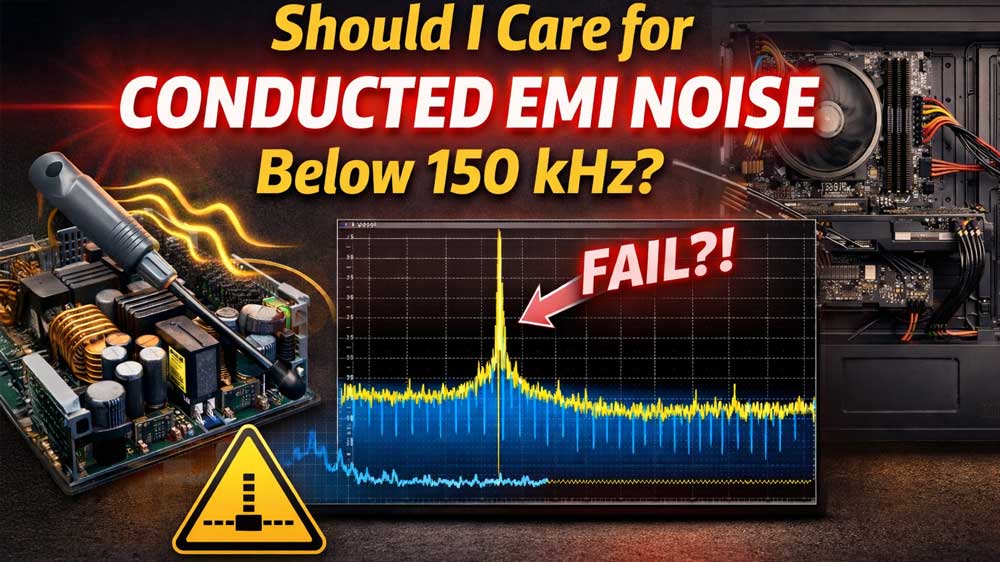
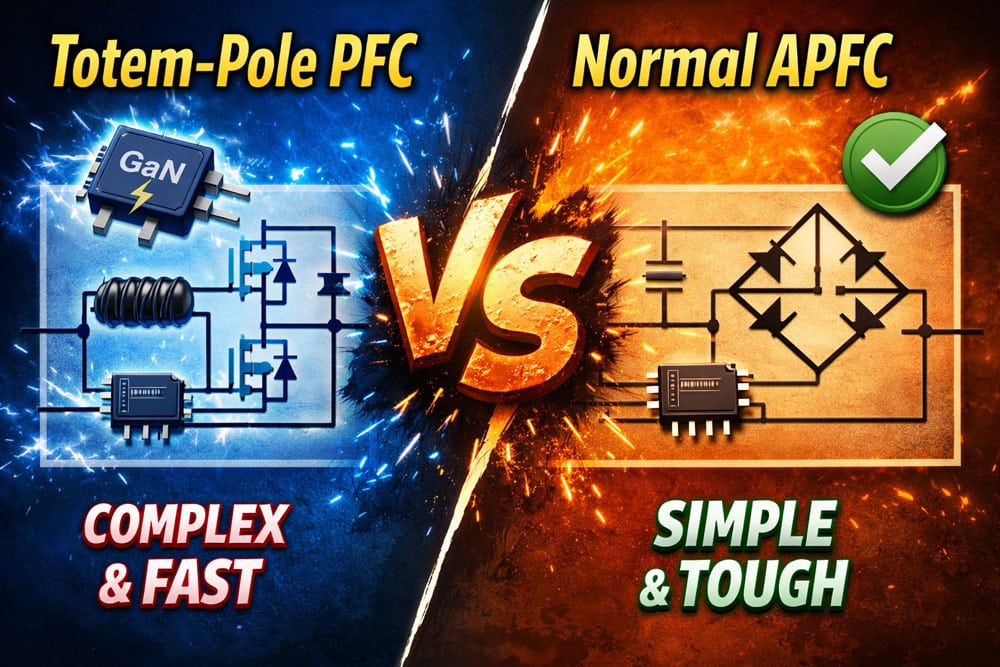
Is High Power the same as Sirfa/Sirtec?
yes